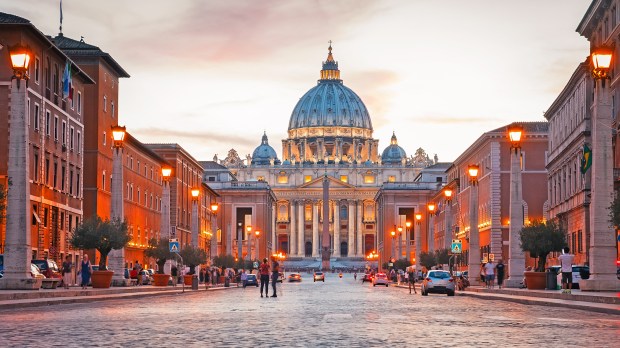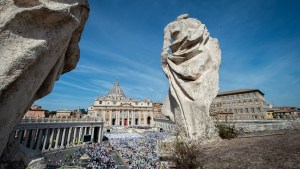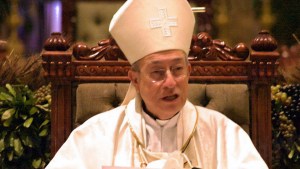In a context of great instability on the financial markets linked to the pandemic crisis, the Institute for the Works of Religion (IOR), the Vatican’s private bank, presents results that are still positive but down sharply in a report made public on 7 June 2022.
In 2021, the Vatican entity posted a profit of EUR 18.1 million euros [$19 million]. Figures clearly down from 2020 – EUR 36.4 million [$39 million] net equity – but equivalent to those of 2018 – EUR 17.5 million [$18.7 million].
However, for the president of the Commission of Cardinals responsible for overseeing the IOR, Cardinal Santos Abril y Castelló, this result is encouraging, “given the low returns in the financial markets” currently. A benefit that the president of the IOR, Jean-Baptiste de Franssu, attributes to prudent choices.
The Vatican entity claims to have EUR 5.3 billion [$5.6 billion] in deposits, a figure higher than that of 2020. It also claims to have EUR 649 million [$695 million] in net equity, for a Capital Tier 1 ratio of 38.5%. This is more or less the same as the previous year (39.7%), and well above the international minimum (4.5%), which testifies to the “high solvency” and “low” risk profile of the IOR.
The published figures were verified, as last year, by the independent auditing firm Mazars. This is the tenth consecutive year that the IOR has published a financial report on its activities. The IOR’s financial statements were submitted to the Commission of Cardinals that oversees the private bank, which has 110 employees and 14,519 clients.
The IOR’s general manager, Gian Franco Mammi, explains the 3% reduction in clients (14,991 in 2020) by the closure of accounts of clerics who have returned to their countries and the closures decreed by the Institute, following “increasingly frequent periodic controls.”
The IOR integrates the new Constitution
The new Apostolic Constitution Praedicate Evangelium, in article 219, paragraph 3, now entrusts the IOR with “the execution of the financial operations of the APSA” – the Administration of the Patrimony of the Apostolic See, which until then had been the Vatican’s “public bank.” This reform, according to the IOR’s annual report, will require an “even greater commitment” on the part of the entity, now the Vatican’s only bank, to “quality banking and investment services.
According to the new constitutional statutes, the ethical nature of both APSA and IOR investments will now be supervised by the Holy See’s Committee for Investments, whose first members were appointed on June 7.



